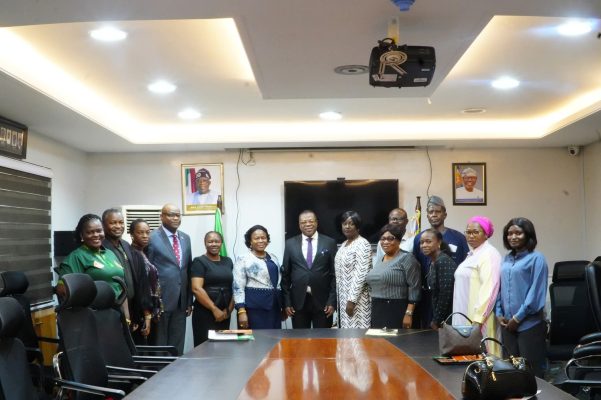The importance of collaboration and a comprehensive approach to preventing violence against women and girls, especially those with disabilities is at the front burner. This was at the state-to-state learning visit on institutional capacity for coordination and internal accountability mechanisms for Ending Violence Against Women and Girls with Disabilities (EVAWGWD) Response.
The initiative, Project Hope, themed, “Strengthening existing VAWG/SGBV prevention and response structure for women and girls with disabilities in Lagos and Osun State”, organised by Centre for Women’s Health and Information (CEWHIN), is supported by the United Nations Trust Fund for Ending Violence Against Women (UNTF).
The peer learning visits were for key stakeholders and government representatives from Osun state to meet counterparts in Lagos state for knowledge exchange on effective institutional response management for gender-based violence.
This visit aimed to enhance the capacity of key actors for coordination and accountability in the response to violence against women and girls including women and girls with disabilities through cross-state peer learning, policy exchange, and institutional benchmarking.
The teams visited several key organisations in Lagos, including the Lagos State Domestic and Sexual Violence Agency (DSVA), Cece Yara Foundation, Mirabel Centre, Women’s Rights and Health Project (WRAHP) – Ireti Resource Center, and the Ogun State Ministry of Women Affairs/Sexual Assault and Referral Centre Abeokuta and Sagamu.
Executive Director, Eco Centre for Transformation and Empowerment Initiative, Osun State, Lola Wey said the learning has highlight the importance of engaging community members in projects for better results. She called for quicker justice delivery across Nigeria on cases bothering on GBV and urged the government to build structures to enable this so that survivors can start healing.
Disability Rights Activist, Funmilayo Abdullahi, said most times PWDs suffer from wrong narratives and GBV even from their caregivers, while Programme Officer, CEWHIN, Stella Osho, added that the visit equipped participants with practical structures they can emulate from Lagos and implement.
For Founder, WRAHP, Bose Ironsi, she expressed excitement that stakeholders can come to the centre to learn and the opportunity to share her experience. “From here, we can build a network of local women rights organisations across Nigeria where we can support each other, build institutional support, organisational development, resource mobilisation and sustainability plan.”
Other key learning included Survivor-centered case management processes that ensure victims receive timely and compassionate support; data collection systems that inform policy decisions and improve service delivery, sensitive interviewing techniques that minimise trauma for victims, procedures for evidence documentation that uphold child protection standards and integrated support services that offer legal, medical, and psychosocial care.



